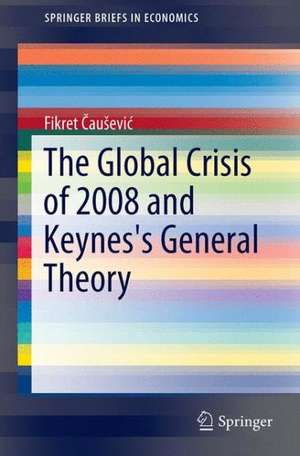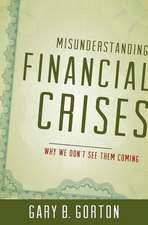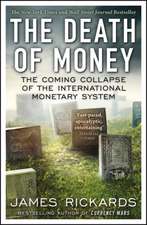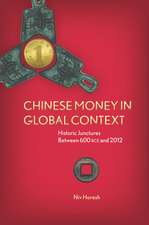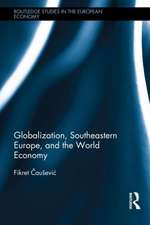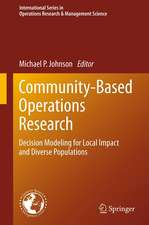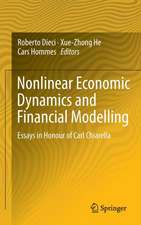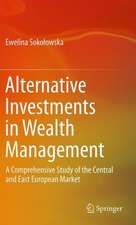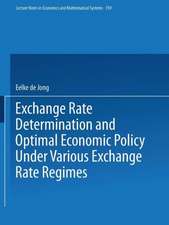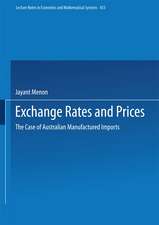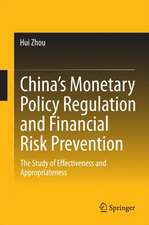The Global Crisis of 2008 and Keynes's General Theory: SpringerBriefs in Economics
Autor Fikret Čauševićen Limba Engleză Paperback – 29 sep 2014
Din seria SpringerBriefs in Economics
-
 Preț: 444.35 lei
Preț: 444.35 lei -
 Preț: 264.79 lei
Preț: 264.79 lei - 15%
 Preț: 462.51 lei
Preț: 462.51 lei -
 Preț: 47.33 lei
Preț: 47.33 lei -
 Preț: 353.14 lei
Preț: 353.14 lei -
 Preț: 273.32 lei
Preț: 273.32 lei -
 Preț: 376.04 lei
Preț: 376.04 lei -
 Preț: 379.09 lei
Preț: 379.09 lei -
 Preț: 380.07 lei
Preț: 380.07 lei -
 Preț: 377.35 lei
Preț: 377.35 lei -
 Preț: 379.09 lei
Preț: 379.09 lei -
 Preț: 376.59 lei
Preț: 376.59 lei -
 Preț: 408.27 lei
Preț: 408.27 lei -
 Preț: 379.09 lei
Preț: 379.09 lei -
 Preț: 383.28 lei
Preț: 383.28 lei -
 Preț: 378.54 lei
Preț: 378.54 lei -
 Preț: 377.95 lei
Preț: 377.95 lei -
 Preț: 340.23 lei
Preț: 340.23 lei -
 Preț: 380.25 lei
Preț: 380.25 lei -
 Preț: 378.12 lei
Preț: 378.12 lei -
 Preț: 376.04 lei
Preț: 376.04 lei -
 Preț: 376.04 lei
Preț: 376.04 lei -
 Preț: 379.68 lei
Preț: 379.68 lei -
 Preț: 381.00 lei
Preț: 381.00 lei -
 Preț: 375.23 lei
Preț: 375.23 lei -
 Preț: 376.80 lei
Preț: 376.80 lei -
 Preț: 378.54 lei
Preț: 378.54 lei -
 Preț: 377.57 lei
Preț: 377.57 lei -
 Preț: 376.04 lei
Preț: 376.04 lei -
 Preț: 378.92 lei
Preț: 378.92 lei -
 Preț: 375.62 lei
Preț: 375.62 lei -
 Preț: 379.09 lei
Preț: 379.09 lei -
 Preț: 353.67 lei
Preț: 353.67 lei -
 Preț: 342.14 lei
Preț: 342.14 lei -
 Preț: 375.45 lei
Preț: 375.45 lei -
 Preț: 379.09 lei
Preț: 379.09 lei -
 Preț: 377.35 lei
Preț: 377.35 lei -
 Preț: 344.86 lei
Preț: 344.86 lei -
 Preț: 377.35 lei
Preț: 377.35 lei -
 Preț: 345.89 lei
Preț: 345.89 lei -
 Preț: 343.83 lei
Preț: 343.83 lei -
 Preț: 378.12 lei
Preț: 378.12 lei -
 Preț: 345.06 lei
Preț: 345.06 lei -
 Preț: 379.48 lei
Preț: 379.48 lei -
 Preț: 379.48 lei
Preț: 379.48 lei -
 Preț: 380.07 lei
Preț: 380.07 lei -
 Preț: 375.45 lei
Preț: 375.45 lei -
 Preț: 445.33 lei
Preț: 445.33 lei -
 Preț: 378.54 lei
Preț: 378.54 lei
Preț: 377.57 lei
Nou
Puncte Express: 566
Preț estimativ în valută:
72.27€ • 78.53$ • 60.75£
72.27€ • 78.53$ • 60.75£
Carte tipărită la comandă
Livrare economică 21 aprilie-05 mai
Preluare comenzi: 021 569.72.76
Specificații
ISBN-13: 9783319114507
ISBN-10: 3319114506
Pagini: 112
Ilustrații: XII, 99 p. 17 illus.
Dimensiuni: 155 x 235 x 6 mm
Greutate: 0.17 kg
Ediția:2015
Editura: Springer International Publishing
Colecția Springer
Seria SpringerBriefs in Economics
Locul publicării:Cham, Switzerland
ISBN-10: 3319114506
Pagini: 112
Ilustrații: XII, 99 p. 17 illus.
Dimensiuni: 155 x 235 x 6 mm
Greutate: 0.17 kg
Ediția:2015
Editura: Springer International Publishing
Colecția Springer
Seria SpringerBriefs in Economics
Locul publicării:Cham, Switzerland
Public țintă
ResearchCuprins
Economic Theory and Economic Policy Since the Seventies: Keynesians versus New Classical Economists.- The General Theory of Employment, Interest and Money: An Overview with Commentary.- Impact of Financial Globalization on the Scope of Economic Theory and Policy.
Notă biografică
Fikret Čaušević was born in Bihać, Bosnia and Herzegovina, in 1963. He is Professor of Economics and International Finance at the School of Economics and Business, University of Sarajevo. In 2002, 2006, 2007 and 2010 he was a Visiting Fellow under the South East Europe Faculty Development Programme at the London School of Economics and Political Science. In the 2011/2012 academic year Fikret was the SEESOX Alpha Bank Visiting Fellow at St Antony's College, University of Oxford. Over the last decade he has written extensively about economic transition in the World, South-East Europe, the Western Balkans, and Bosnia and Herzegovina. Some of his monographs and books published in English were: Financial Liberalization and Globalization – Impact and Effects in South-East European Countries, Money Market Development in Bosnia and Herzegovina, and Foreign Trade Policy and Trade Balance of Bosnia and Herzegovina. His book Economic Sovereignty and Global Capital Flows was published by the International Forum Bosnia (2006), and Hyderabad University Press, India (2008). Fikret's article „What type of fiscal policy for the Western Balkans during the crisis“ was published by the Southeast European and Black Sea Studies (2012), and his textbook (in Bosnian language) The Principles of Economics (Volume I – Principles of Microeconomics; Volume II – Principles of Macroeconomics) was published by the School of Economics and Business, University of Sarajevo in July 2012. In 2013, the International Forum Bosnia published Fikret's collection of papers Bosnian Economic Puzzle – Economic Transition in Bosnia and Herzegovina from 1996 to 2013.
Caracteristici
Includes supplementary material: sn.pub/extras
